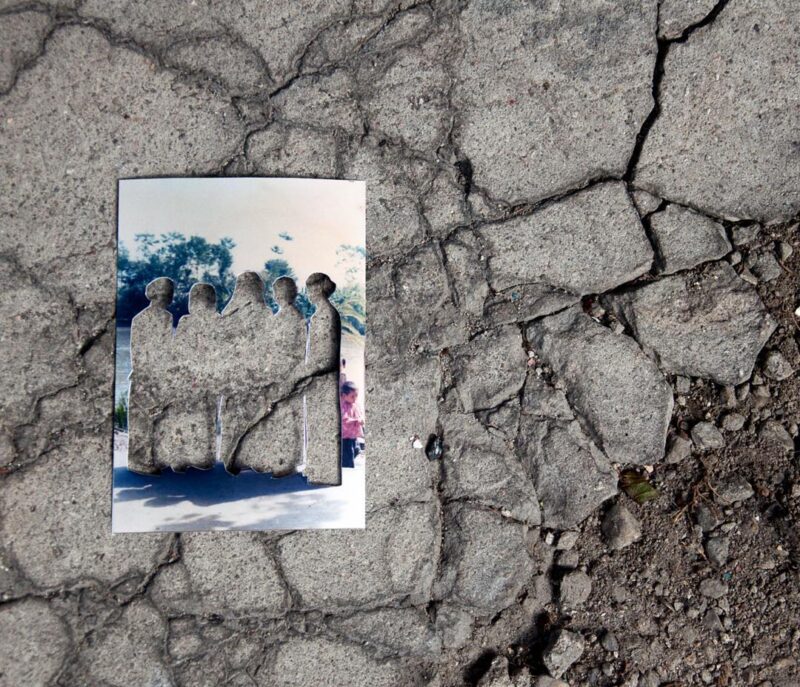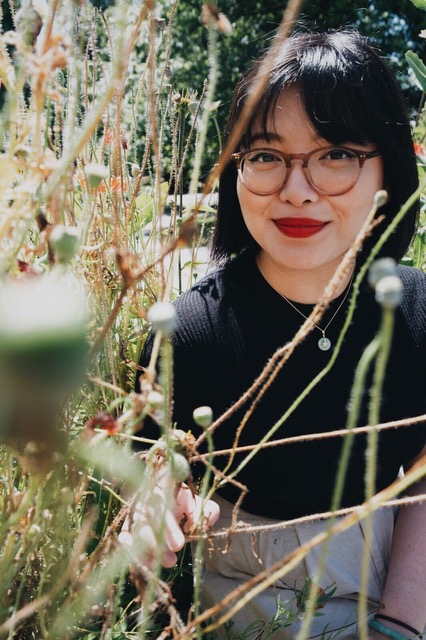
Over the last little while I’ve had a few Vietnamese elders ask me why I refer to myself as a Vietnamese settler and not a Vietnamese Canadian. I’ve noticed that these questions usually come from a place of genuine curiosity but often implies that I am, in some way, not grateful for both the great sacrifices my parents made in immigrating from Vietnam to Canada, and for my citizenship as a Canadian.
Like so many of us who are a part of the Vietnamese diaspora, I am a child of former refugees who had left their homes in the 80’s in the midst of political upheavals. But whether our families came to Canada and the US because of post-war politics or for other opportunities later on, our relationship to land is one that has been constructed by colonialism and the ongoing disenfranchisement of Indigenous peoples and communities.
Land has memory. Indigenous elders, youth, and land protectors have laboured and stewarded these lands since time immemorial, which is a reminder to us all that the concept of Canada is only a fraction of time and history.
As a settler, and someone whose familial and ancestral history is also tied to histories of displacement, understanding and living on Indigenous land is a political commitment that is just as important as understanding my fractured relationship to my family’s homeland of Vietnam.
Earlier in the year, as Indigenous land defenders occupied the intersection of Hastings and Clark manning a blockade to restrict access to the Port of Vancouver, I not only witnessed how deeply contentious the claims to land are, but also how important the responsibility to land is. As a settler, and someone whose familial and ancestral history is also tied to histories of displacement, understanding and living on Indigenous land is a political commitment that is just as important as understanding my fractured relationship to my family’s homeland of Vietnam.
Although our struggles and immigrants and settlers should not take precedence over the struggles of Indigenous communities, it is also clear that our struggles are bound together. To say that I am a settler doesn’t end at patting myself on the back after a land acknowledgment. Being a settler comes with reckoning with the deep and complicated ways that colonialism has influenced racism and prejudices within Vietnamese communities, and learning how to undo the intergenerational harm it has done within our communities.
My parents consider themselves one of the lucky ones to have escaped poverty and uncertain political times. To have been taken in by the Canadian government and be granted citizenship after years in Hong Kong as refugees meant a shift in fate and opportunity.
But despite the luck that my parents seemed to have held onto, there is also the sense of loss that continues to surface in our conversations. For my parents and many people from their generation, being in Canada has meant providing their children opportunities that had been taken away from them; it has meant large sacrifices, discomfort, and pain in order to escape for what they believed would be a better life. In return the only thing my parents ask from me is gratitude to validate what they had lost.
“Are you not grateful for your parents’ sacrifices? Do you realize how much your parents have given up for you? Do you know how lucky you are?” While I have come to recognize these questions are evident of the bootstrap mentality that so many immigrants adopt in order to survive, it also confirms that there is no measure of gratitude that would be enough to compensate for what the older generation had lost.
Although some elders within the Vietnamese community may question my position on politics, sometimes to dismiss me as being naive, these questions can also open a space for more conversation, learning, and healing. Undoing anti-Indigenous and anti-Black racism within our own racialized communities is a dedicated and ongoing process. While many people will come into these conversations of racial justice at different stages of understanding, creating the opportunities to learn with our elders has helped mend my relationships within the community.
If my freedom is contingent on the oppression of Indigenous people, genocide, and ongoing occupation and displacement, then how truly free am I? How free are we?
There is no denying that formally having Canadian citizenship has given me privileges within the scope of global state politics, but it should not make me dismissive to the structures of power that enable white supremacy and colonialism. Confronting the contradictions within our society as we move towards racial justice allows us to see and imagine our place on this land differently. If my freedom is contingent on the oppression of Indigenous people, genocide, and ongoing occupation and displacement, then how truly free am I? How free are we?
The language of gratitude is pervasive in the way that it relies on us to grapple for scraps of power while ignoring the structures that rely heavily on our exploitation. And while we could insist that being a Canadian citizen should give us rights to belong in North American culture, or that it somehow exempts us from racism, there is nothing that could allow us to escape a society that codes Indigenous, Black, and people of colour as foreign aliens or dirty migrants.
This isn’t a question about whether or not I’m grateful. And in fact, for so many of us, there is no amount of gratitude that we can show that could prove ourselves worthy of fair recognition or to escape the grips of white supremacy. Rather, it’s a question of why these sacrifices, the ones that have defined a generation of immigrants, had to be made in the first place. Interrogating the histories of global displacement and colonial structures that continue to oppress communities have been essential to how I understand the messy and complicated history that binds me both to Vietnam and here. Gratitude could only make us ignorant for so long before it becomes unbearable to see protesters flood into the streets demanding for a world that is more just and generous.
Unlearning is heartbreaking because it often requires us to unearth the generations of pain and heartache that have enabled our existence as immigrants, refugees, as racialized settlers living on occupied territories; unlearning is confronting the uncomfortable ways that we have benefitted from the arms and systems of oppression while also being entangled in its hold. But as I continue to understand and connect the histories that complicate the narratives of my identity as diasporic and displaced, I recognize the incredible gift of gratitude towards this land, but not the governing state that has occupied it.
Author Bio

Y Vy Truong is a second generation Vietnamese settler living on the occupied lands of the three title holding nations: xʷməθkʷəy̓əm (Musqueam), skx̱wú7mesh (Squamish), səlílwətaʔ/sel̓íl̓witulh (Tsleil-Waututh). In 2018 she graduated from the University of British Columbia (UBC) with a Bachelors in Art (BA), double major English Literature and History, and a minor in Asian Canadian Asian Migration Studies (ACAM).



It is good that this article acknowledges the role of conquest and occupation in the lands where almost all of us live. I’m assuming the author’s parents came from the south of Vietnam, in which case they were living on the occupied lands of conquered Khmers, or if it was central Vietnam the occupied lands of conquered Chams. The history of the human species is one of migration and occupation of new places, often at the expense of earlier settlers. The more we recognise this hopefully the more tolerant of settlers (rather than conquerors) we will become.